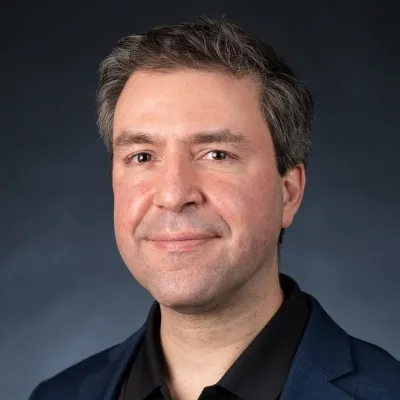Alex DeMarco is the founder and CEO of the Pittsburgh-headquartered financial counseling platform for mental health therapy, starting with gambling addiction. RustBuilt Pittsburgh recently caught up with DeMarco as he kicked off participation in the New York City-based Techstars Economic Mobility Powered by Samvid Ventures Accelerator.
Read his full Q&A and watch the full interview below. The transcript of the interview has been edited for length and clarity.
1. How did you come to do this work and why is it so important to you personally?
A few years ago, my wife and I were engaged, and we began discussing our finances. We realized we had accumulated significant debt, including student loans and credit card debt. When we sought help from financial advisors, the experience was disappointing. They either tried to sell us unnecessary services or deemed us not wealthy enough to work with. We decided to tackle our financial problems on our own, but it was a long and error-filled journey.
Given my background as a software engineer with two decades of experience, I decided to create a solution. I developed an app that allowed users to interact with a chatbot, which would generate a financial spreadsheet. Users could then connect with a financial coach or counselor for personalized assistance. However, most users didn’t opt for one-on-one professional assistance; instead, they craved a community of peers facing similar financial challenges.
We shifted our focus to building communities, and an unexpected opportunity arose when we received an email from the problem gambling program administrator in North Carolina. They wanted to establish a financial education community for mental health professionals helping problem gamblers, who often faced financial distress alongside their addiction. What started as a pilot project succeeded, and we now have members in 15 states, with contracts in nine states where the government supports the financial counseling we offer to mental health professionals and their clients.
Our grand vision is to develop the financial counseling platform for the entire mental health industry. Many people dealing with anxiety, depression, and stress also grapple with financial issues, and mental health professionals lack the necessary training and tools. We bridge this gap to help clients recover faster.
2. What was your lightbulb moment for MoneyStack?
The pivotal moment for MoneyStack was when we identified a pressing issue and provided a solution. We transitioned from building technology in search of a problem to addressing a “hair on fire” problem that users desperately needed help with. This shift allowed us to gain traction and expand into multiple states.
3. What is the elevator pitch for MoneyStack?
MoneyStack assists individuals with gambling addiction in their journey to recovery by simplifying access to financial counseling during treatment. We already have nine state governments as customers and have generated over $100,000 in revenue in 2023. Additionally, we’ve been accepted into the Techstars Economic Mobility Program in New York City, and we’re just getting started. Our focus extends beyond problem gambling, as 52% of individuals with anxiety, depression, or stress attribute their condition to financial distress. We aim to integrate financial counseling into mental health therapy.
4. Talk us through your strategy in building a team around you.
I lead a team of five individuals. I previously served as the director of engineering at The New York Times, managing a 60-person team responsible for our subscription platform. With over 20 years of experience in software engineering and two ventures in Pittsburgh, I bring expertise to the table. We also have advisors from both the financial services and mental health domains to guide us.
Our mission and core values drive our recruitment process. We’re still in the process of defining our core values, but one of them will be “one impossible thing at a time.” This reflects the challenging nature of startups and the seemingly insurmountable problems we tackle. Our mission and values align with our hiring process.
5. Talk us through one of your daily rituals.
With my routine disrupted due to frequent travel between Pittsburgh and New York City, maintaining daily connections with my family is paramount. I make sure to call home every evening and chat with my 6-year-old son on Skype, where he often teaches me the ropes of Roblox. It’s a cherished way for us to bond despite the distance.
6. What is a recent challenge you’ve faced as an entrepreneur and how did you overcome it? What lesson(s) did you take away from it?
As a solo founder, I felt overwhelmed with an ever-growing to-do list. However, I discovered that my part-time team members were capable of handling more responsibilities beyond their initial roles. Empowering them to take on multiple tasks enhanced our productivity and eased my workload.
7. What does the next year look like for MoneyStack?
Looking ahead to the next year, we have three primary objectives. First, we aim to significantly grow our revenue, despite already achieving six figures. Second, we plan to conduct experiments in areas of mental health beyond problem gambling to showcase the broader applicability of financial counseling. Lastly, we intend to install our software on customer sites to bolster customer acquisition, complementing our B2B account-based sales strategy.
8. What is a key piece of advice you’ve received that you’d want to share with other founders?
One invaluable piece of advice I received is to truly understand your customer and their problems before developing a solution. Initially, I ignored this advice and built technology based on assumptions. It led to frustration, wasted time, and money. Once we started focusing on understanding our customers’ needs, our business evolved in a more successful direction.
9. How can our regional startup community help your efforts?
Lastly, regarding how the regional startup community can help us, beyond fundraising and some dreamlike infrastructure improvements, I’m grateful for the support from programs like the Ascender incubator and FoundersBoost Pittsburgh. Their support has been instrumental in our journey, and I appreciate their assistance.







